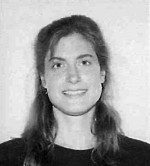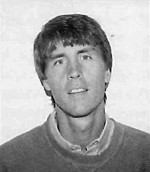New Co-Chairs
As of August first, I stepped down as chair of the LTER Graduate Student Committee to allow our two newly elected co-chairs a chance to release some creative energy. Janet Fischer (North Temperate Lakes) and Reed Perkins (H.J. Andrews), have been very active in the GSC since its creation at the 1993 LTER All Scientists Meeting, and I look forward, to seeing what contributions they will make as co-chairs.
Since I was inducted as chair in September 1993, the GSC has completed several activities toward accomplishing its three primary goals:
- Facilitating communication among graduate students and researchers across LTER sites
- Creating opportunities for intersite research projects, and + developing a more interdisciplinary graduate education
Student E-mail Group. An e-mail group which allows anyone to send a notice to ETER students was established and has been used primarily to post announcements of meetings, decisions, and job opportunities pertinent to all students. The list presently includes nearly a hundred names and is always changing. To be added, students may send a message to students-request@LTERnet.edu including name, address and work phone.
Web Page. LTER students now have their own World Wide Web page (http://lternet.edu/about/scientis/students.htm, part of the Network Office home page) which includes information ranging from a list of students and their projects at different sites to funding opportunities and previous e-mail notices to students. (The same information is available on the LTERnet.edu gopher server.) This is also a great place to find out about the GSC.
Three NSF Graduate Research Traineeships have been awarded for the first of five years of a new program supporting an integrated approach to the study of lake and stream ecology (see left and right column sidebars for abstracts of two). The specific objective of the program, an outgrowth of NSF’s Freshwater Imperative effort, is to develop scientists who can work across environmental gradients and circumvent the intellectual barriers that traditionally have existed between lake and stream or river studies. The traineeships are sponsored jointly by the Center for Streamside Studies, University of Washington,
ESA Mixer. Alison Magill (H.J. Andrews) organized a student mixer at the 1995 Ecological Society of America meeting to bring students together to share ideas and stimulate some cross-site comparison projects. More than 200 LTER and non-LTER students attended. ESA chair Judy Meyer noted that she would like to see the mixer become an annual event, perhaps with some support from ESA.
Cross-Site Award. In May 1995, the LTER Coordinating Committee passed a unanimous resolution creating an LTER student cross-site award from Network Office funds to encourage students to apply their current studies to other LTER sites. The first competition produced two awards (Bryan Dail, Coweeta and Reed Perkins, H.J. Andrews) but, since the total budget was not depleted, the Executive Committee allowed another competition this month (October 1995). Information about these awards and the new competition is available via the student web page under “Student Opportunities.” Awardees are required to write a report describing their work, so watch for some interesting feedback online and in future issues of the Network News.
Overall, the Graduate Student Committee is off to a good solid start. Many of the original goals are being met, and LTER students now have additional options to enhance their education. On the students’ behalf, I would like to thank the LTER community for giving us this opportunity to play a more active role in the Network. Special thanks to Dr. Caroline Bledsoe for her invaluable advice and support in making the GSC a success. I’m sure you will be hearing more about the GSC and its activities in the coming year.
Josh Greenberg, 206/543-4512, josh@LTERnet.edu

 Enlarge this image
Enlarge this image
